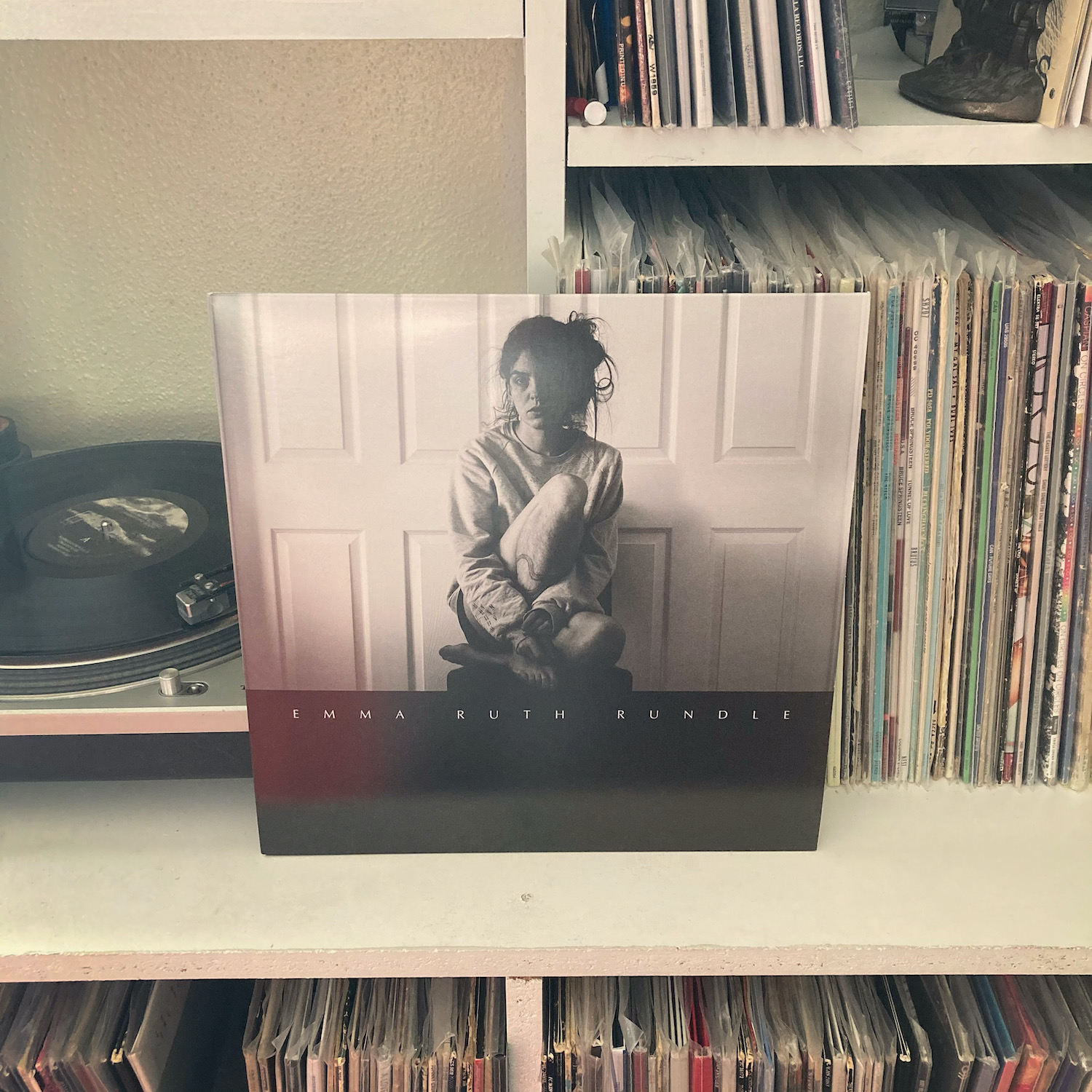
In the last few months, my awareness of Emma Ruth Rundle has absolutely exploded. I was introduced to her most recent solo record On Dark Horses when I was assigned it while writing for a Belgium-based review site, and even then she was only introduced to me as the guitarist from Red Sparowes.
After almost a year and a half of knowing and loving just that album, I started to dig deeper, falling in love with her alternative/post-rock/psychedelic outfit Marriages, psych-folk outfit Nocturnes (someone sell me their vinyl copy plz), and her recent collaboration with doom metallurgists Thou.
But it’s taken me until a few weeks ago to listen to any of her other solo work, and once I did, the obsession continued. Marked For Death, her second song-based solo album—and regarded by many to be her best—is a crushing work of dark, brooding Southern gothic that showcases her stunning talent as both a songwriter and an ambient architect.
Marked For Death was preceded by Electric Guitar One, an instrumental album of atmospheric, improvised guitar tracks, and Some Heavy Ocean, her first songwriter album, which hit much closer to the typical sonic palette of singer-songwriter albums—though with plenty of experimental weirdness floating alongside the acoustic guitar parts.
On the other hand, Marked For Death seems to have been preceded by the realization that her experimental electric guitar work and her songwriting didn’t necessarily have to be at odds—they could be combined (this realization may have been precipitated by her tours with bands like Deafheaven and Earth). The result is a sound that isn’t quite post rock, isn’t quite folk, and isn’t quite heavy metal, but has undeniable elements of all of them. This palette is nearly identical to On Dark Horses, but it’s a bit darker, with less hopeful moments and more overt heaviness than its successor.
It’s a starkly vulnerable record, using the thickness of its sonic atmosphere to augment her lyrics rather than obscure them. The ethos is shown clearly on the cover: Rundle sits curled up and barefaced in front of a closet door, her face half-covered in shadow. She’s clad in an oversized shirt and shorts, her unshaven legs faced directly at the viewer. Her hair is tied up messily, as if she put it up before bed and just woke up. It’s an almost aggressively intimate portrait—unabashedly vulnerable. It would feel almost voyeuristic if she weren’t making eye contact with the camera.
This aggressive vulnerability works its way throughout the music as well. Self-vivisecting lyrics are wailed over the crash of detuned guitars and crashing cymbals. The opening self-titled track finds her fatalistically accepting the punishment suffered in a toxic relationship, asking, “Who else is going to love someone like me that’s marked for death?” It’s followed by “Protection,” which paints an even clearer picture of the relationship, allowing herself to be tied down, finding escape in addiction. Her velvety, Southern tinged voice confesses, “I am worthless in your arms / But you offer this protection no one else has given me.” Cue burst of guitar noise.
“Medusa” shuffles with a lumbering sluggishness, Rundle addressing the mythical snake-headed woman with a mood that blurs between reverence and pity. It reminds me of modern reinterpretations of the myth where the violated, once-beautiful Medusa’s so-called curse was given by Athena to protect her against being raped again. However, it’s unclear if Emma Ruth wishes for this same protection for herself, or whether she’s wishing Medusa would let down her guard and allow herself to love. “Hand of God” finds her in a state of similar post-violation. But instead of Medusa’s hard-heartedness, she wishes for a miraculous undoing of what has been done to her, somehow knowing it will never happen.
Side B opens with “Heaven,” a quieter, less dirgelike track, though her lyrics here are perhaps the most mournful, perhaps referencing a lost child. Her clean guitar traces odd chords as strings float around it, eventually exploding with a single fiery guitar line soaring as her mourning transcends into a revelatory vision of the fires of heaven. “So Come” takes a more pointed look at this apocalypse, bringing more references to an unborn child and calling for the saints to all come down to judge the world and set all things back to right.
“Furious Angel” finds the abusive relationship culminating with death. She sings “You are pretty because your shotgun fills me up / You are pretty because your knife twist lets my blood,” and “If you won’t have me or bring me your love / Furious angels rain death from above onto me.” Is it murder? Is it suicide? It’s unclear, but death is coming, and she means every word.
It closes with “Real Big Sky,” which strips away the band to just Emma and an acoustic guitar swollen with gain. The perspective shifts here, now mourning the passing of the narrator whose voice has informed the rest of the album and remembering how they used to welcome passing into death and meeting again on the other side. She describes the song as a “kind of hopeful” look at the rest of the album’s reckoning with mortality.
I think that the mere fact that an album that deals with abuse and addiction and death can be intimate and inviting proves that. She describes this record as a sort of “psychological alchemy,” a way of getting closure from experiences to make room for more life to happen. And given that this album delves into such deep despair and yet comes out hopeful is proof positive that she was successful in that aim.